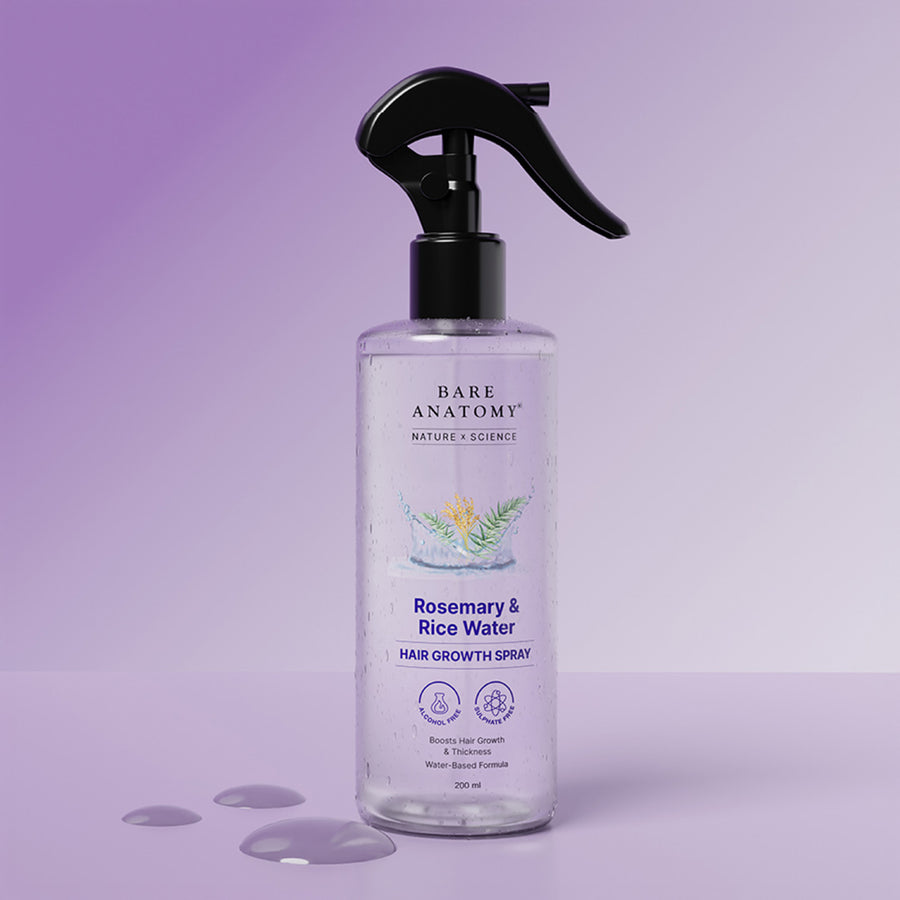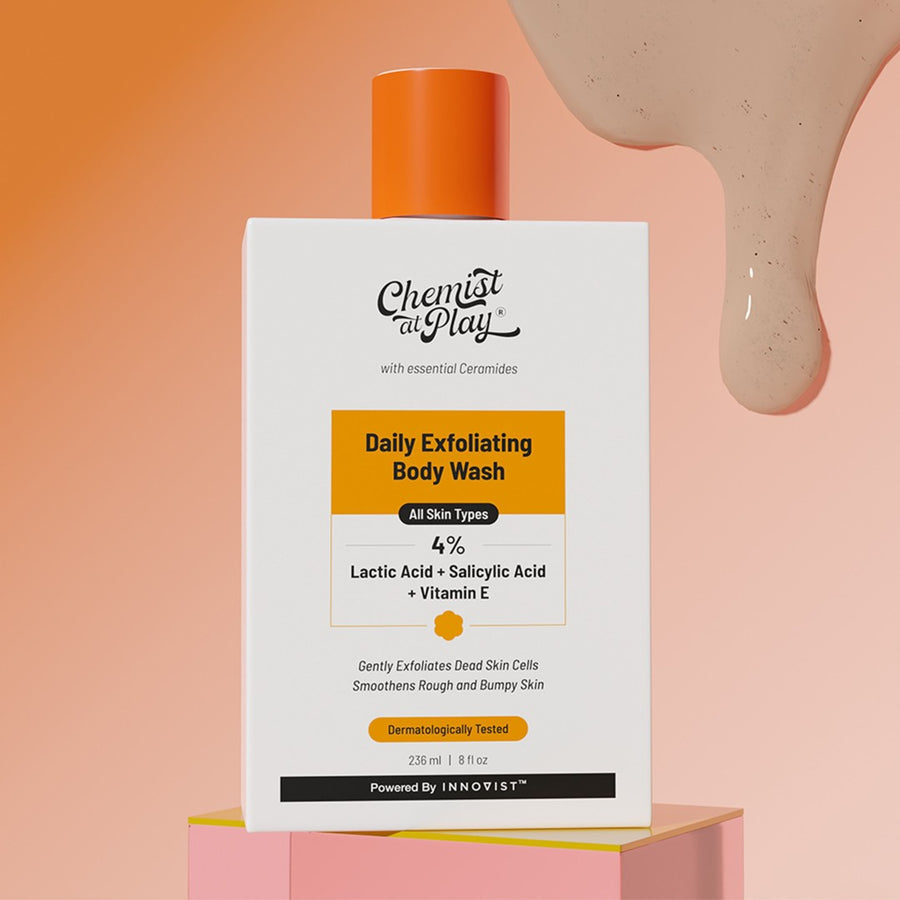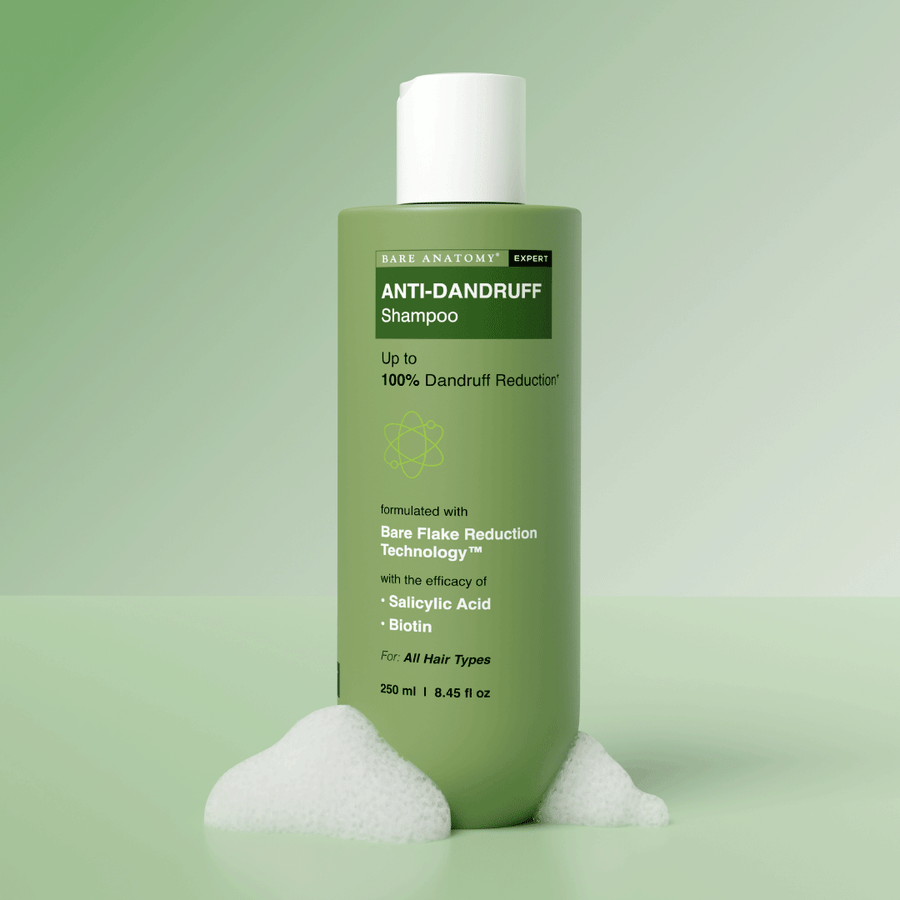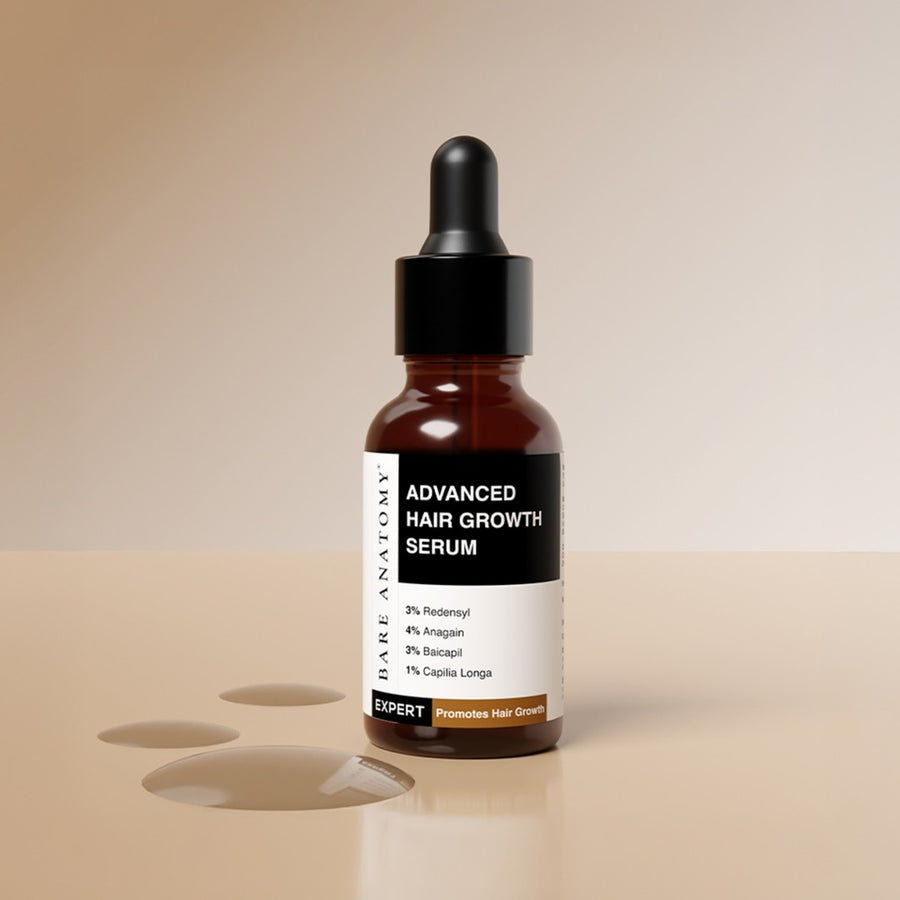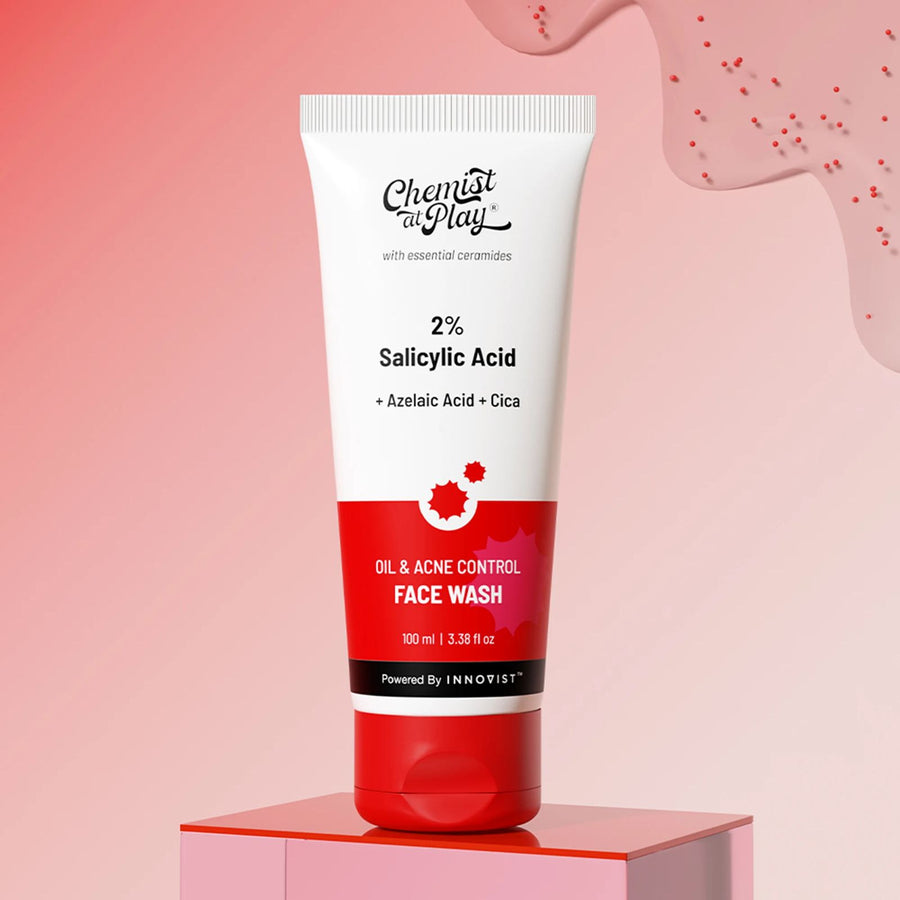
Understanding Skin Care Actives: Types, Benefits & Uses in Daily Skin Care Routine
Skin-care actives are scientifically-proven ingredients that target specific skin concerns such as dryness, acne, pigmentation, signs of ageing and produce visible results by working at a deeper, cellular level. Unlike basic base ingredients, actives deliver measurable improvements in texture, tone and clarity.
In this complete guide you'll learn:
-
What actives are and why they matter
-
A curated list of key actives with uses, benefits & how to apply them
-
How to choose actives for different skin types (oily, dry, pigmented etc)
-
How to combine actives & which actives not to mix
This is structured to help you get the best results while maintaining healthy skin and avoiding irritation or misuse.
Popular Actives in Skin Care
Hyaluronic Acid
 A powerhouse hydrator, hyaluronic acid binds water to your skin, instantly plumping and smoothing its surface. It helps reinforce the moisture barrier, reducing fine lines and boosting softness. Lightweight and non-greasy, it’s suitable for every skin type and works well in both humid and dry climates.
A powerhouse hydrator, hyaluronic acid binds water to your skin, instantly plumping and smoothing its surface. It helps reinforce the moisture barrier, reducing fine lines and boosting softness. Lightweight and non-greasy, it’s suitable for every skin type and works well in both humid and dry climates.
Benefits
-
Holds up to 1000 times its weight in water, delivering intense hydration
-
Plumps fine lines, smoothing the skin surface
-
Strengthens skin’s moisture barrier, improving elasticity and softness
When to Start Using - Safe to use from teenage years onward, especially if skin shows signs of dryness or dehydration.
Recommended Dosage - Use 1–2% concentration in serums or moisturizers for optimal hydration.
Optimal Time to Use - Apply the Hyaluronic Acid Serum in morning and evening on damp skin to lock in moisture effectively.
Niacinamide

|
|
Niacinamide (Vitamin B3) is a multitasking ingredient reviving dullness, reducing inflammation, and strengthening your skin barrier. Regular use tightens pores, regulates oil, and smooths uneven texture. With anti-redness and calming properties, it also supports balanced hydration.
Benefits
-
Regulates sebum production, reducing oiliness without stripping
-
Minimizes enlarged pores for smoother texture
-
Soothes inflammation and reduces redness
-
Improves skin elasticity and barrier function
When to Start Using - Ideal for early 20s, suitable for oily, combination, and sensitive skin types.
Recommended Dosage - Use a 2–5% concentration in Niacinamide Face Serum or creams for daily application.
Optimal Time to Use - Safe both morning and night; pairs well with most other actives.
Ceramides
 Ceramides are lipid molecules vital for building a strong, resilient skin barrier. They keep moisture locked in while defending against harsh environmental stressors and pollution. Perfect for dry, eczema-prone, and sensitive skin, ceramide creams restore comfort and prevent flakiness.
Ceramides are lipid molecules vital for building a strong, resilient skin barrier. They keep moisture locked in while defending against harsh environmental stressors and pollution. Perfect for dry, eczema-prone, and sensitive skin, ceramide creams restore comfort and prevent flakiness.
Benefits
-
Prevent water loss, ensuring hydrated, plump skin
-
Protect against environmental damage and irritants
-
Repair dry, irritated, or compromised skin
-
Improve overall skin texture and comfort
When to Start Using - Suitable for all ages, especially beneficial for dry, sensitive, or mature skin.
Recommended Dosage - Found in most moisturizers; no strict concentration guideline.
Optimal Time to Use - Use twice daily to maintain skin barrier health.
Vitamin C
Vitamin C is a powerful antioxidant that protects skin from free radical damage while promoting collagen production and brightening discoloration.
Benefits
-
Fades dark spots and evens skin tone
-
Stimulates collagen for firmer, youthful skin
-
Protects against pollution and UV damage
-
Revitalizes dull, tired complexions
When to Start Using - Best introduced in the early 20s for preventive and corrective care.
Recommended Dosage - 10–20% L-ascorbic acid or stable vitamin C derivatives in serums.
Optimal Time to Use - Morning application under sunscreen for maximum protection.
Product Recommendation - Give your skin the glow it deserves with the 10% Vitamin C Face Serum, packed with stable, high-grade Vitamin C to fade dark spots, even out skin tone, and boost collagen.

Salicylic Acid (BHA)
 Salicylic acid penetrates deep into pores, clearing away clogged oil and dead skin cells to fight acne and blackheads. Its exfoliating action smooths rough texture and fights inflammation without stripping skin.
Salicylic acid penetrates deep into pores, clearing away clogged oil and dead skin cells to fight acne and blackheads. Its exfoliating action smooths rough texture and fights inflammation without stripping skin.
Benefits
-
Penetrates deeply to clear clogged pores and blackheads
-
Reduces inflammation and redness
-
Controls excess sebum for balanced skin
-
Prevents future breakouts
When to Start Using - Recommended from teens onward for acne-prone, oily skin.
Recommended Dosage - Use 0.5–2% concentrations in toners, serums, or cleansers.
Optimal Time to Use - Primarily nighttime use; 2–3 times per week to prevent irritation.
Lactic Acid (AHA)
Lactic acid exfoliates gently while hydrating, ideal for sensitive or dry skin struggling with dullness or rough texture.
Benefits
-
Removes dead skin cells for smoother skin
-
Boosts hydration and enhances skin’s natural glow
-
Reduces pigmentation and softens rough patches
When to Start Using - From the early 20s, especially for dry or sensitive skin.
Recommended Dosage - 5–10% concentration in masks or serums.
Optimal Time to Use - At night, 1–2 times weekly.
Alpha Arbutin
Alpha arbutin inhibits melanin production, gradually reducing dark spots and promoting a more uniform complexion.
Benefits
-
Lightens hyperpigmentation and age spots
-
Gentle, non-irritating brightening agent
-
Works well for all skin types
When to Start Using - In your 20s or when pigmentation first appears.
Recommended Dosage - Use 2–4% in serums or creams.
Optimal Time to Use - Day or night, layered under moisturizer or sunscreen.
Kojic Acid
Kojic acid is a natural brightening agent that reduces melanin synthesis to lighten pigmentation and improve skin radiance.
Benefits
-
Treats melasma, sun spots, and uneven tone
-
Even skin complexion for clear, bright skin
When to Start Using - From the 20s onward, for pigmentation concerns.
Recommended Dosage - Use 1–4% creams or gels.
Optimal Time to Use - Nighttime use with daily morning SPF is essential.
Azelaic Acid
Azelaic acid calms inflammation and inhibits acne-causing bacteria, making it great for rosacea and mild acne.
Benefits
-
Reduces redness and acne lesions
-
Fades dark spots and corrects skin tone
-
Gentle and suitable for sensitive skin
When to Start Using - Effective for teens to adults, especially for sensitive/acne-prone skin.
Recommended Dosage - 10–20% creams or gels.
Optimal Time to Use - Apply morning or night after cleansing.
Skin Care Actives You Can Combine
-
Hyaluronic Acid + Niacinamide - Hydrates while balancing oil production.
-
Ceramides + Hyaluronic Acid - Deep barrier repair and moisture retention.
-
Vitamin C + Niacinamide - Brightening and smoothing pore appearance.
-
Alpha Arbutin + Niacinamide - Gentle and effective pigmentation correction.
Skin Care Actives You Shouldn’t Mix
Retinol + Vitamin C
May irritate and reduce effectiveness due to differing pH needs. Best used separately (Vitamin C in AM, Retinol in PM).
AHAs/BHAs + Retinol
Over-exfoliating the combination risks dryness and sensitivity. Alternate days or choose only one to avoid irritation.
Salicylic Acid + Niacinamide
Sequential use can reduce niacinamide absorption and cause dryness. Use niacinamide AM and salicylic acid PM for best results.
Multiple Exfoliating Acids (AHAs + BHAs)
Combining multiple exfoliants increases the risk of barrier damage. Stick to one exfoliant per skincare session
How to Choose the Right Active Ingredient for Your Skin Type

| Skin Type | Recommended Actives | Tips |
|---|---|---|
| Oily / Acne-Prone | Salicylic Acid, Niacinamide, Glycolic Acid | Start slow; always use morning SPF; avoid over-drying. |
| Dry / Sensitive | Hyaluronic Acid, Ceramides, Lactic Acid, Shea Butter | Gentle exfoliation only; emphasise barrier repair and hydration. |
| Pigmented / Dull | Vitamin C, Alpha Arbutin, Kojic Acid | Use brightening + sun-protection combo; patience required for results. |
*Always start slow and patch test new actives for safe, effective results.
















